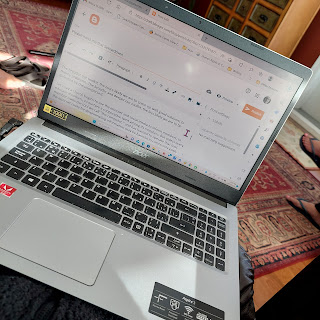How much am I bid??
 |
| Metropolitan Cathedral, Panama City |
I remember hearing long ago that a
human was worth $11.50. The astoundingly audacious pronouncement
rested on the assumption that some marketable chemicals could be
extracted from a cadaver.
A horse, one guesses, would be worth
much more.
.
Dismissing that absurd evaluation, we
could consider how much we individually are paid for our skills and
labour. By that measure, a surgeon is worth about ten times as much
as a McDonald’s employee.
Strident anti-abortionists—I’m
guessing—would argue that a living human is of immeasurable worth,
and that a fetus is a human being.
The indiscriminate bombing of Eastern
Aleppo this week by Russian and Syrian militaries demonstrated again
that to some persons, various of our fellow humans are considered
immeasurably valuable while others are discarded as less than
worthless.
In a capitalist economy, people are
inevitably layered into levels of worth by at least some standards.
Adherence to a religion or cult divides by definition; people within
are accorded more worth than people without.
In some cultures, the language gives
away an assessment of worth; the word Minderwertiger
in German translates as, literally, those of diminished
worth. It’s generally been
applied to persons with reduced capacity for learning. Retarded
in English is a similarly-loaded designation.
The
question arises naturally: is it human
life itself
or the endowment, character and behaviour of the person possessing it
that carries worth? Attitudes toward race, birth control, euthanasia, the death penalty, abortion, assisted dying all hinge on
the understanding of the value of life itself . . . separate from
the being that possesses it. (For some, animal life would fall
naturally into any such discussion as well: does a reverence/disdain
for life extend to all
life?)
There
is a branch of philosophy (and religion too, for that matter)
commonly called humanism.
In short, humanism
leans toward considering human well-being (including health, shelter,
nourishment and freedom from fear and suffering) to be the ultimate
moral, ethical measure. Seen as potentially in opposition to a
morality and ethics based on God's will and transmitted through scriptures,
some religions have rejected humanistic world views. Humanism has
many definitions,
but in principle it throws the responsibility of working toward the
goals of human well-being onto humans themselves, not supernatural
forces or beings.
Other
religions have seen humanism as support for “the work of God.”
It’s
hard to speak for the animals, but where humanity is concerned, life
is not important, not
desirable, not
negotiable: life, and
with it consciousness, are the everything and the only thing. There
is nothing else. Before I was born, before a consciousness developed
in me, the universe, it’s animals, it’s people, it’s ideas of
its origins and its demise, its religions and philosophies DIDN’T
EXIST. And they will
cease to exist as consciousness is returned to wherever it came from.
That
life and human consciousness should even exist in this cold,
impersonal universe is, for me, the first miracle worthy of amazement
and wonder. And because it is—in effect—the miracle without which
none others are possible, it must lie at the foundation of all that
is good, all that is humane, all that humans strive after. All that
religions have striven toward for so long, and have so fundamentally
missed.
And
finally, is our tendency to see long life as worth more than
short life not a false consciousness? This perception has certainly
coloured our discussion of assisted dying; by humanistic standards of
ethics and morality, quality of life should trump length as the key
consideration.
Also, the
ability to choose is—by most any standard—an essential component of life
quality.



Comments
Post a Comment